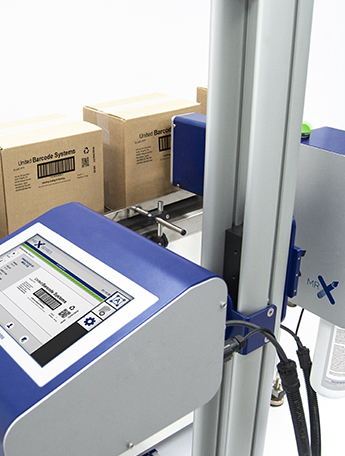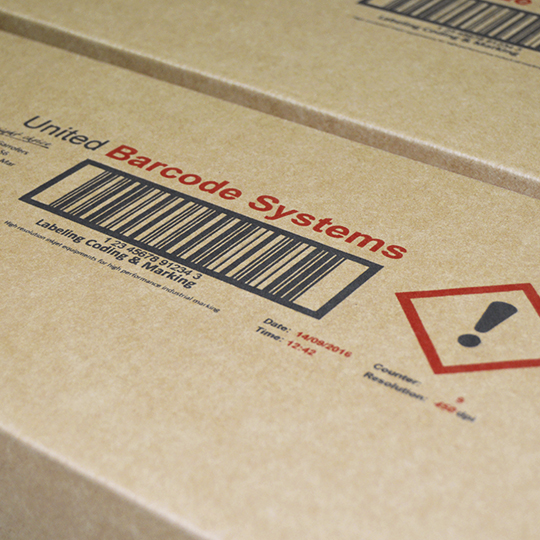Reach/CLP
REACH is the acronym for regulations governing the registration, evaluation, authorization, and restriction of chemicals. These regulations stipulate that the single system for registration, evaluation, and authorization of chemicals must provide information on chemical-related risks and how those risks are to be controlled throughout the production chain.
These regulations are directly linked to the regulations on Classification, Labeling, and Packaging of substances and mixtures (CLP). These regulations specify the hazard statements, caution statements, and pictograms that must be used to warn of the hazards of chemical substances and mixtures and how people must be informed of those hazards.
Hazardous substances or mixtures must be labeled such that workers and consumers are aware of their effects before using or handling them.
Find out more about REACH and CLP regulations in our Learn with us section.
UBS APLINK MRX Bicolor high-resolution inkjet printers are designed and manufactured to print pictograms and texts in accordance with REACH and CLP regulations (the machines have two printheads and two separate ink sources for two-color printing). They are able to print images, expiration dates, and all types of barcodes that are fully legible and compatible with GS1 standards (EAN13, ITF14, GS1-128, GS1-Datamatrix, etc.) for secondary packaging, making APLINK MRX Bicolor printer the best solution for this market.
High-resolution inkjet
Using 4th generation piezoelectric printhead technology, UBS APLINK Series high-resolution printers can print scannable barcodes, images, texts, and variable content with high contrast directly on any porous or non-porous substrate.
APLINK Series combines mineral-free oil-based ink technology and LED-cured UV ink technology to print on the various surfaces used for secondary and other types of packaging.
Equipped with an 10.1" touchscreen controller (APLINK LCX Series, 5.7" touchscreen) and software with an operator-friendly graphic interface, APLINK Series printers can be connected to the computer network via Ethernet connection using the TCP/IP protocol, or they can be used as stand-alone systems with the messages recorded in their 4GB of memory, providing capacity for up to 10,000 messages.



